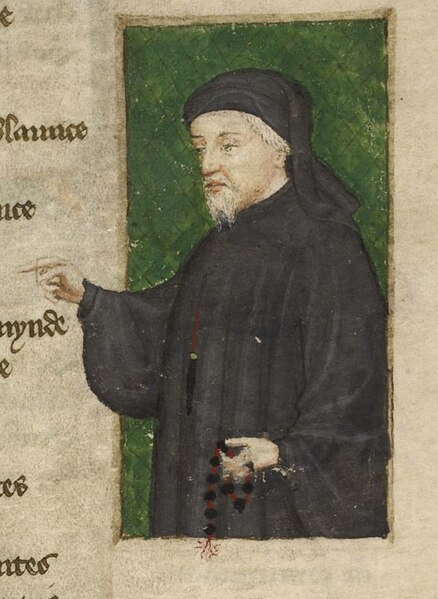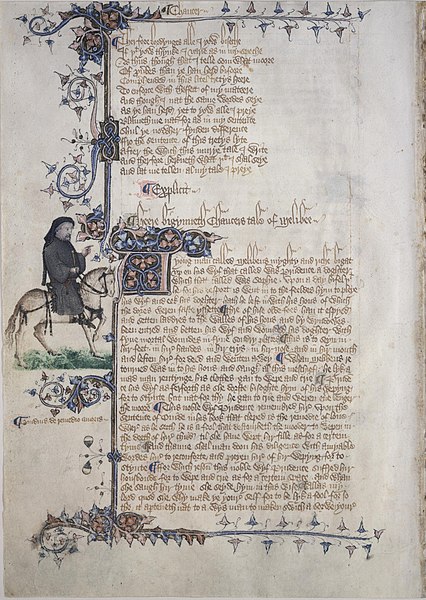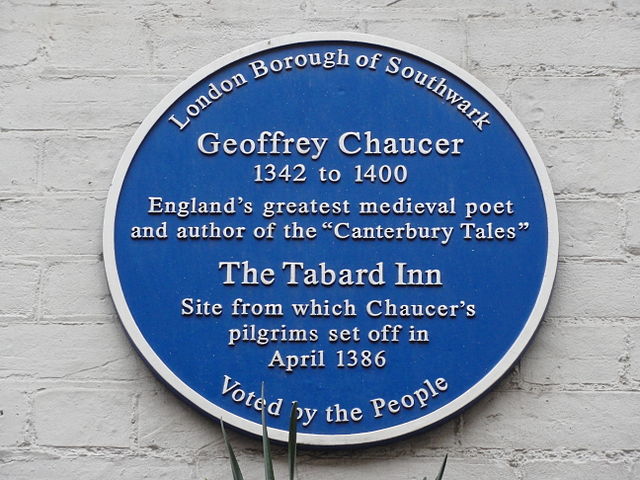Thomas Hoccleve or Occleve (1368/69–1426) was a key figure in 15th-century Middle English literature, significant for promoting Chaucer as "the father of English literature", and as a poet in his own right. His poetry, especially his longest work, the didactic work Regement of Princes, was extremely popular in the fifteenth century, but went largely ignored until the late twentieth century, when it was re-examined by scholars, particularly John Burrow. Today he is most well known for his Series, which includes the earliest autobiographical description of mental illness in English, and for his extensive scribal activity. Three holographs of his poetry have survived, and he also copied literary manuscripts by other writers. As a clerk of the Office of the Privy Seal, he wrote hundreds of documents in French and Latin.
Henry V, whilst Prince of Wales, presenting Hoccleve's Regement of Princes to the Duke of Norfolk, 1411–1413, British Library
Geoffrey Chaucer was an English poet, author, and civil servant best known for The Canterbury Tales. He has been called the "father of English literature", or, alternatively, the "father of English poetry". He was the first writer to be buried in what has since come to be called Poets' Corner, in Westminster Abbey. Chaucer also gained fame as a philosopher and astronomer, composing the scientific A Treatise on the Astrolabe for his 10-year-old son Lewis. He maintained a career in the civil service as a bureaucrat, courtier, diplomat, and member of parliament.
Manuscript portrait, 1412
Chaucer as a pilgrim, in the early 15th-century illuminated Ellesmere manuscript of the Canterbury Tales
A 19th-century depiction of Chaucer
Blue plaque at the site of the Tabard inn in Southwark, London where in 1386 the pilgrims in The Canterbury Tales set off to visit Canterbury Cathedral





